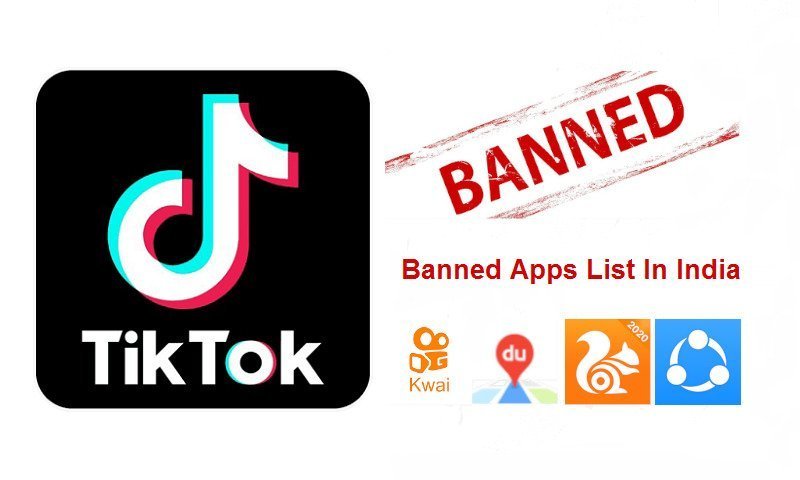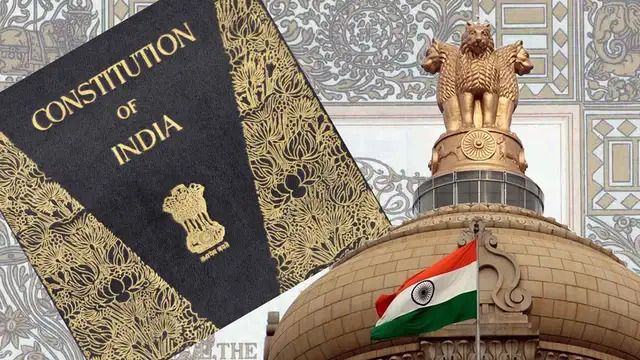These are the Banned Chinese Apps in India – You need to know

The Great App Purge: India’s Stand Against Chinese Digital Influence
The Government of India banned several Chinese apps in multiple rounds starting in June 2020. India banned 59 Chinese apps today in a surprise move. The government alleged that these apps were stealing data and sending it to servers located outside the country. Below are the list of 59 banned Chinese apps in India which were blocked by GoI due to several reasons as mentioned in this article.
What the ministry of electronics and information technology said about this Chinese Apps in India
The ministry of electronics and information technology said through Press Information Bureau that the apps have been banned because they are prejudicial to the sovereignty, integrity and defense of India. Besides that, every Indian wants to boycott Chinese products and digital platforms to give a lesson that “Till Now, You Banned Others – But Today We Banned You”.

The most popular Chinese App that is Tiktok social networking App, used by millions of Indian people, is banned by the Government. Due to recent LAC issue in Ladakh with China, most of Indian Citizens are talking about banning these Chinese Apps. India will take more important steps like this against China because of the cheap tactic of China to seize the territory of its neighbor countries. By banning these Chinese apps, India gives a clear message to China that Indians should not tolerate China’s anti-Indian activities.
The ban of Chinese apps in India received strong public support and had significant implications for the digital market, prompting a shift towards domestic alternatives. This decisive action underscored India’s focus on protecting its digital sovereignty and securing its digital infrastructure against external threats, influencing future policies and international relations.
Here are the banned Chinese Apps in India by the Government of India:
- TikTok
- Shareit
- Kwai
- UC Browser
- Baidu map
- Shein
- Clash of Kings
- DU battery saver
- Helo
- Likee
- YouCam makeup
- Mi Community
- CM Browers
- Virus Cleaner
- APUS Browser
- ROMWE
- Club Factory
- Newsdog
- Beutry Plus
- UC News
- QQ Mail
- Xender
- QQ Music
- QQ Newsfeed
- Bigo Live
- SelfieCity
- Mail Master
- Parallel Space
- Mi Video Call – Xiaomi
- WeSync
- ES File Explorer
- Viva Video – QU Video Inc
- Meitu
- Vigo Video
- New Video Status
- DU Recorder
- Vault- Hide
- Cache Cleaner DU App studio
- DU Cleaner
- DU Browser
- Hago Play With New Friends
- Cam Scanner
- Clean Master – Cheetah Mobile
- Wonder Camera
- Photo Wonder
- QQ Player
- We Meet
- Sweet Selfie
- Baidu Translate
- Vmate
- QQ International
- QQ Security Center
- QQ Launcher
- U Video
- V fly Status Video
- Mobile Legends
- DU Privacy
When this news is published, some of these banned Chinese apps are still available for download on both Google Play Store and Apple App Store. But these will also be banned from download in India.
Behind the Ban: Analyzing the Motivations and Justifications
The primary reasons cited for these bans include:
- National Security Concerns: The Indian government expressed concerns that these apps were engaging in activities that posed threats to the country’s sovereignty, integrity, and defense. There were worries about data security and privacy, with allegations that these apps were collecting and sharing data with the Chinese government.
- Geopolitical Tensions: The bans came amid rising geopolitical tensions between India and China, especially following the border clashes in the Galwan Valley in June 2020. The move was seen as part of a broader strategy to counter Chinese influence and pressure China over the border dispute.
- Data Privacy: The government claimed that the banned apps were stealing and surreptitiously transmitting users’ data in an unauthorized manner to servers outside India, raising significant data privacy concerns.
- Cybersecurity Threats: There were allegations that some of the apps could potentially be used for cyber espionage, spying, and other malicious activities that could compromise national security.
- Public Demand and Support: There was considerable public support for the ban, with many Indian citizens calling for a boycott of Chinese goods and services following the border skirmishes.
In response to these concerns, the Ministry of Electronics and Information Technology (MeitY) of India issued orders under Section 69A of the Information Technology Act, 2000, to block these apps, citing their engagement in activities that are prejudicial to the sovereignty and integrity of India, defense of India, the security of the state, and public order. However, you need to safeguard your personal data from Chinese smartphones as an additional measure.
Conclusion
The ban on Chinese apps by the Government of India was a decisive and multifaceted action reflecting deep-seated concerns over national security, data privacy, and geopolitical tensions. This move, driven by allegations of unauthorized data collection and potential cyber threats, underscored the importance of digital sovereignty in an increasingly connected world. The strong public support for the ban highlighted a collective desire to safeguard national interests and reduce dependence on foreign technology perceived as risky.
In the broader context, the ban has had significant implications for India’s digital landscape, prompting a shift towards domestic alternatives and reshaping market dynamics. It also sent a clear message about India’s stance on cybersecurity and its readiness to protect its digital infrastructure against external threats.
As India continues to navigate its path in the global digital arena, the lessons learned from this episode will likely influence future policies and strategies. The focus on security, privacy, and self-reliance in technology will remain paramount, shaping the country’s approach to digital governance and international relations. The ban on Chinese apps was not just a reaction to immediate threats but a proactive step towards a more secure and sovereign digital future for India.







